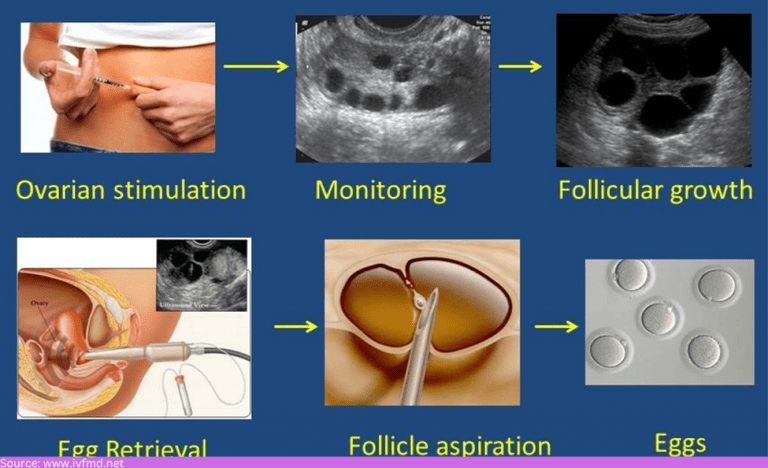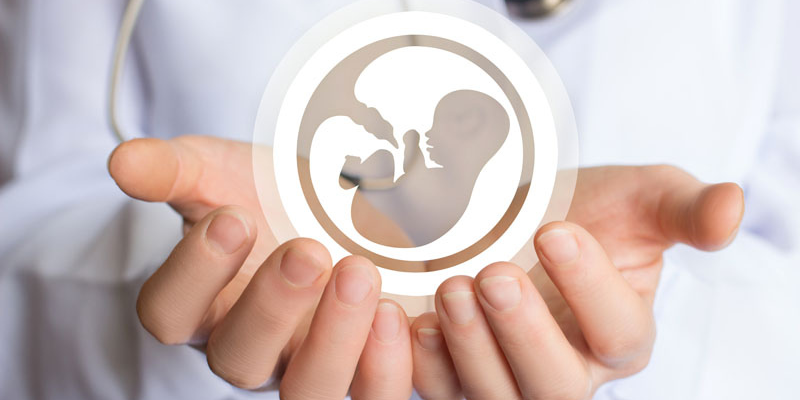It can be upsetting and overwhelming for a woman who is ready to have a family but is not conceiving. Particularly if she has attempted the traditional strategies to increase her chances: engaged in unprotected sex throughout her reproductive window and used pregnancy aid tools like ovulation tracker apps. You can help such women by donating some of your healthy eggs.
Egg donation is a boon for women with fertility issues as it helps them realize their dream of motherhood, says Dr. Hrishikesh Pai, a renowned fertility specialist in India. A fertile woman can give her eggs, or oocytes, to another woman in order to aid her in getting pregnant. This procedure is a component of ART (Assisted Reproductive Technology).
If you are considering donating your eggs, you probably have many inquiries and concerns about the procedure. This blog is to address these concerns.

Can donating eggs be painful?
Potential donors frequently worry about whether the egg donation process may hurt. After all, if you are thinking of giving your eggs, this is probably the first thing on your mind.
Donating eggs should not be painful. Egg collecting is regarded as a minimally invasive technique carried out under anesthesia.
After going through a cycle, you might feel as if you are having period pains, and occasionally it is possible that you might feel a little uncomfortable the following day as well. But be assured that the medical professionals at the facility will be there to guide you through the process and advise you on how you can alleviate any discomfort.
Even though egg donation is primarily painless, there are a few potential side effects and sensations that you need to be aware of. Let us understand the egg donation process.
Pre-retrieval ovarian stimulation

Fertility drugs to stimulate the ovaries and induce multiple egg production is the first significant part of egg donation treatment in India. The egg donor uses a needle injection to self-administer these medications.
Some individuals may find needles unsettling and feel they can cause slight physical discomfort. However, the needle used to give these medications is quite small and should not cause any substantial pain. A nurse will also be able to show you how to self-administer the pills in the least uncomfortable method possible.
You will be required to undergo a number (often 3 to 5) of ultrasound monitoring scans to monitor the development of the follicles and assure your safety.
The last hormone injection will be administered to you around a day or two before egg retrieval. This trigger injection aids the eggs’ maturation and prepares them for collection.
It is crucial to remember that certain medications occasionally cause adverse effects. These side effects, which can be mild to severe, can include mood fluctuations, upset stomach, breast soreness, bruising at the site of injection, and bloating.
Egg retrieval
Transvaginal oocyte retrieval is a method used to remove eggs from the ovaries. In this operation, a needle is injected into an ovarian follicle with the aid of an ultrasound probe that has been placed into the vagina. The eggs are retrieved using a suction device that is attached to the needle.
Dr. Hrishikesh Pai, often regarded as the best IVF doctor in India, says that you will be sedated throughout this process, so you will not experience any discomfort or pain.
After egg retrieval
Donors usually feel sleepy once the treatment is finished as the sedatives slowly wear off, so you will require help traveling home safely. In the following days, donors frequently feel some light bleeding and slight cramps. Though they could persist for a week or longer, these symptoms should go away in a few days.
Are there any risks from the procedure?
An egg donor may be sensitive to fertility medications and develop OHSS (Ovarian Hyperstimulation Syndrome). OHSS causes the ovaries to produce a large number of follicles, which makes their ovaries enlarge and hurt as the hormonal levels rise.The final injection (trigger injection), given a day or two before egg retrieval, is regarded as the safest and reduces the risk of OHSS.
After the egg retrieval process, there will likely be slight discomfort and possibly even some mild pain, and you will need to relax for a few hours. Light bleeding and infection are the two main concerns connected with ovarian needle insertion.
The majority of ovary manipulations cause mild bleeding. In rare cases, the bleeding may be more severe and require medical intervention.
At Bloom IVF Centre in India,we will provide instructions detailing what to anticipate and warning signals to look out for after the egg-collecting operation. A 24-hour emergency phone number will also be provided to you in case you need to contact us over any warning indicators.
Conclusion

Egg donation enables women with fertility issues to experience the miracle of life when there is no alternative.
Through the egg donation technique, a woman who is menopausal or unable to conceive using her own oocytes can use an egg supplied by another woman to become pregnant.Egg donation frequently helps women who are unable to use their eggs due to advanced age, ovarian failure, or the desire to prevent congenital disabilities in the fetus, among other factors.
If you are planning to undergo egg donation treatment in India for a loved one who cannot use her eggs, please visit Dr. Hrishikesh Pai. He has over 35 years of expertise as a fertility doctor and is the founder and director of the state-of-the-art Bloom IVF Group.
You may be concerned about whether the procedure involves pain. The process is not typically painful. You may experience sensations similar to what you feel when undergoing your menstruation. There may be a bit of discomfort the next day as well.
Anything further than this is highly uncommon, and our devoted and encouraging team at Bloom IVF Centre in India will be there to accompany you through all the emotional and medical elements of donation.

